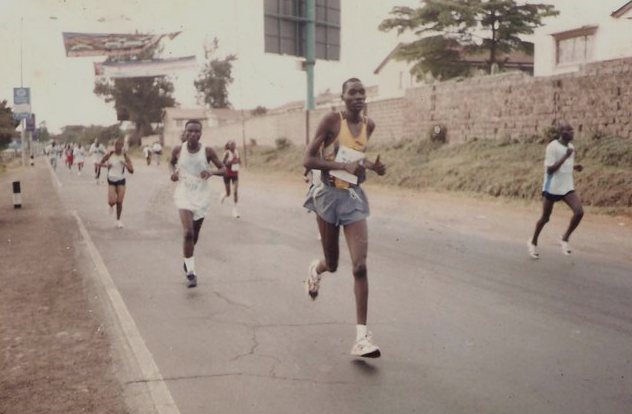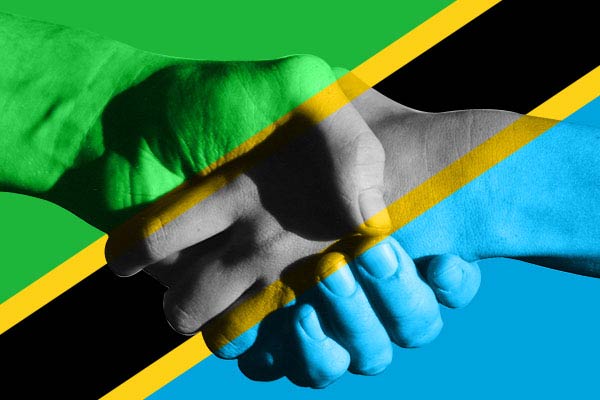I recently needed a refresh of my Kenyan visa with a trip out of the country. I didn’t have money to fly but could afford a road trip somewhere. And I like road trips. So I bussed from Nairobi to Mombasa, then Mombasa to Dar es Salaam, Tanzania. From Dar es Salaam, I caught another bus all the way across the north of the country to Arusha. And then I went back to Nairobi.
I did the entire fleeting trip in a record 36 hours, over a weekend, at minimal cost. I saw the entirety of northern Tanzania, ate at many roadside diners, and gauged something about the nature of the people. I even got a new Kenyan visa thrown into the bargain as well.
***
The road to Dar es Salaam runs past a distant Indian Ocean with crowds of coconut palms on the shoreline. Ragtag kids are just chilling out near the road, or playing ball in the yard of a village, surrounded by banana palms. Mothers are hanging up their washing, dads perhaps meeting with friends in the shade outside. A few small grocery shops and makuti (palm frond) bars punctuate the smooth journey on good roads.
Arriving in Dar es Salaam in the late afternoon, and having already been on the road for the entire day, I quickly enlisted a guy to help me find a local place to stay. In what was probably a half hour of walking Dar, we decided on a hotel overlooking a small sandy village that seemed undisturbed, living at the edge of the city.
I walked around a bit as dusk fell. It was obviously safe in the village as well as in the small part of the city at its fringe. No one even looked at me except to greet. I bought some dates at a fruit market, drank soda at a sidewalk cafe and ate an early dinner as dark descended.
I had pilau rice and masala fish at a family restaurant run from the covered veranda of their flat-roofed family home, where I drank bottled water in the absence of any beer on the menu. It made sense to be sitting outside in the humid night.
Through the evening, all around me, people sat outside, under cover from the drizzle, on benches, chatting in the damp darkness. Others passed, seeming always on some mission or other: men in Muslim headgear, women in multicoloured, patterned veils. There was constant activity as people crossed in angular paths, avoiding errant boda-bodas (motorbike taxis) on the road.
Urban East African Islam, peaceful and serene.
I slept early and checked out early to catch a bus direct to Arusha. A well-powered luxury bus took twenty of us the huge distance to Arusha, travelling comfortably quickly on the broad clean tarmac.
On the way, the vegetation changed to African savannah. Thorn trees and a carpet of green grass in the rain. Copses of hills with a backdrop of distant mountains. A few zebras and giraffes on the plain aside Maasai herders and morans (warriors) loping in the bush. And Maasai-style conservation all the way: thousands of newly planted trees.
The bus arrived in Arusha in the dark, and in the rain. I was expecting cash in the morning, to get me out the country and through the border so the boda-boda guy dropped me at a three-star place in the centre of town where, unusually, I was able to negotiate to stay the night and only pay in the morning.
By 10am, the cash I’d been promised from Kenya hadn’t arrived, so with not much else to do but wait, I wandered around Arusha a bit. And the experience of Arusha in the rain was enchanting.
One street down from the hotel, an informal market of banged-together split-pole stalls and homespun wooden trailers ran all day. The sellers, some of them older mamas, but some of them mothers with young kids, sat sheltered in the constant drizzle, busying themselves amidst spirited chatting and vigorous laughter. They were trading fruit and vegetables between themselves more than with anyone else, eating avocados and pineapples in the rain.
Everyone was in wonderment that I spoke some Swahili and most engaged me in brief conversation, usually asking where I was from.
“Mimi ni Muafrika kutoka kusini,” (I’m an African from the south) I’d say, and they would usually laugh with a nod when I assented to the recurrent question of “Mandela?”.
They giggled at my Nairobi Swahili, a language that contrasts with the soft, lyrical style of theirs. But I was at least able to converse with them a bit in the notable absence of English. We were all at ease.
I was greeted warmly, sometimes quizzically, when asking for directions to the bank ATMs, and then to the only money transfer place still open. Both times I asked, the guys walked with me to the place, just so that we could chat.
The entire experience of Tanzania was without incident and salama sana (very peaceful). I saw no one begging and no one asked me for a thing. Only a Maasai mama selling jewellery at the Namanga border post wouldn’t let me go.
There’s a lot going on in Tanzania that’s promising and the country is recovering from its socialist slump. The roads are good and Dar es Salaam is obviously growing rapidly. Arusha is also the permanent headquarters of the African Court on Human and People’s Rights.
There were no images of African disease and famine to take home, and despite the simplicity of many Tanzanians’ lives, the people I spoke to were happy. And even if Julius Nyerere’s Ujamaa (African socialism) wasn’t the greatest economic success, that he produced a tribeless society is remarkable. Tanzanians no longer learn a mother-tongue language first. Swahili is their common language, giving them a singular identity. And what I experienced during this visit – and the two before it – was a joyous people, a people at peace with themselves. It’s not like that in Kenya at all.
Brian Rath was born and raised in Cape Town. He now lives and writes in Kenya, and has a novel due to be published shortly.




